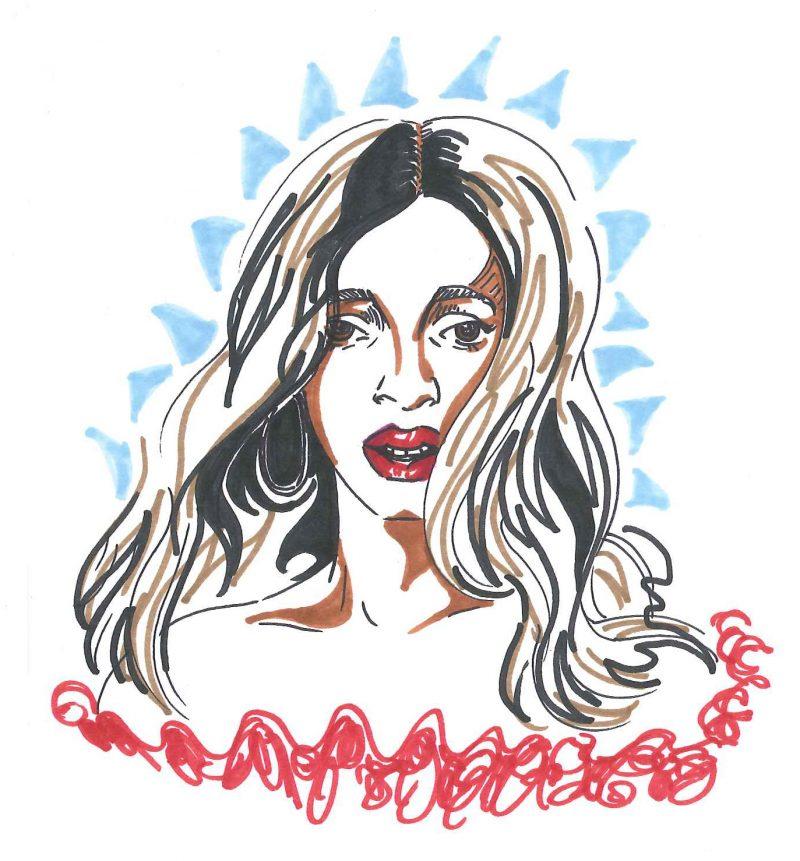“Is she a stripper, a rapper, a singer?” Cardi B raps about herself on “Drip,” the second song on her new album “Invasion of Privacy.” This is a kind of started-from-the-bottom statement that actively acknowledges the speed with which her now-we’re-here came. Cardi B has only been actively releasing music for less than three years, and already she is one of the most sought-after names in rap music as far as performance, and a frequently heard voice on pop and hip-hop radio stations. Her rise to fame happened with such speed that she has yet to experience a transitory stage, melding together her past career as a dancer with her current success.
Even though it happened fast, a lot has changed for Cardi B since the release of her first LP-length mixtape, “Gangsta Bitch Music Volume 1” in the Spring of 2016. She was already famous two years ago, but not nearly to the magnitude that she is now. The Bronx rapper’s rise to the top started in 2015 when she was signed on for a season of VH1’s “Love and Hip Hop.” She quickly became a fan favorite in accordance with her over-the-top persona and stayed for another season before dropping the program in 2016 to focus more fully on her music career.
Although “Love and Hip Hop” offered her a platform and a certain amount of fame, her career really took off after she left. The climate in 2016 allowed a plethora of newcomer hip-hop acts to reach the mainstream. Among the tattooed faces of Soundcloud rappers, 2016 also brought the all but forgotten trio of Migos back into the spotlight, one of whom Cardi B got engaged to that year. Offset and Cardi B are currently expecting a child together, but her pregnancy hasn’t stopped her from performing a very acrobatic Coachella set earlier this week.
Cardi B’s face can be seen on any social media outlet in one of a million contexts. Most frequently, she appears as the poster woman for Fashionnova, the brand of reasonably priced clothing that, from what I can tell, only exists in corporately promoted Instagram content.
Earlier this month, the rapper released her first non-mixtape album, “Invasion of Privacy,” to widespread critical acclaim. The New York Times reported that Cardi B has become the fifth female woman to debut a rap album at number 1, following in the footsteps of foundational women in hip-hop like Lauryn Hill, Foxy Brown, Eve and one-time collaborator Nicki Minaj. Perhaps more gratifying is that in the process of sliding into the top slot she beat out Thirty Seconds to Mars, the washed-out alt-rock band fronted by accused abuser Jared Leto, as well as XXXtentacion, a musician whose entire mythos revolves around his history of abusive violence, highlighted by the young rapper’s systemic abuse of his pregnant girlfriend. Other than the above-mentioned garbage men, even the immaculate Abel’s “My Dear Melancholy” moved down to number two after Invasion of Privacy was released.
The first single released from the album was also a smash hit. “Bodak Yellow” peaked at number 1 on the US Billboard and garnered Cardi institutional attention, winning the 2017 BET award for Single of the Year. It was also nominated for two Grammys, although she lost both to Kendrick Lamar. The song features Cardi B musing on the flow of fellow A-lister Kodak Black, from his single “No Flocking,” but its success outweighed that of “No Flocking” almost as soon as it hit the radios. Her lyrics on this song as well as most of her others are aggressive in a way that makes the listener feel powerful. Not in the same way that say, Eminem might have aggressive or violent lyrics that reflect a masculine projection of unprocessed emotions, but in a more lovable fuck-the-haters way.
Other notable songs from the album include “I Like It,” which features a sample of Pete Rodriguez’s “I Like It Like That,” which if you don’t recognize in print you would recognize by sound. The song features a Boogaloo trap beat and two rappers who perform verses in Spanish. The final song, “I Do,” features SZA, off of the summer’s widely bumped “Cntrl,” and is produced by Murdabeatz. The hook, sung by SZA, is an unapologetic approach to leaving a prospect on read, ending with “I do whatever I like, I do, I do” playing on the ritualized statement of matrimony, only here she uses it to express her aggressive individuality, but Offset was already aware of that.







